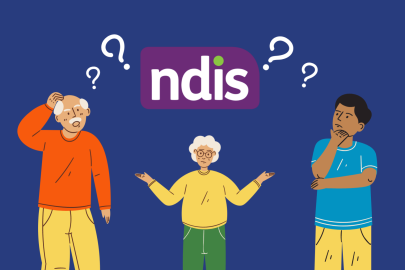Collaborative Care: Working with Providers under NDIS
Collaborative care is an essential aspect of the National Disability Insurance Scheme (NDIS). It involves teamwork among participants, their families, carers, and providers to ensure the best outcomes for individuals with disabilities. Understanding how to work effectively with NDIS providers can make a significant difference in accessing quality services and support. Collaborative Care: Working with Providers under NDIS
Understanding the NDIS and Collaborative Care
The NDIS is Australia’s initiative to support people with disabilities, providing them with funding for necessary services and support. Collaborative care under the NDIS emphasizes the importance of working together with service providers to create personalized plans that address the unique needs and goals of each participant.
The Role of Participants and Their Families

Participants and their families play a crucial role in collaborative care. They are the experts on their own lives, preferences, and needs. By actively participating in the planning and decision-making process, participants can ensure that their NDIS plans align with their goals and aspirations.
The Role of NDIS Providers
NDIS providers are professionals trained to deliver a range of services and supports, including therapies, personal care, and community participation programs. Collaborative care involves building a trusting relationship with providers, communicating openly, and working together to implement and adjust plans as needed.
Effective Communication with Providers
Effective communication is key to successful collaborative care under the NDIS. Here are some tips to improve communication with providers:
Be Clear About Your Needs and Goals
Clearly articulate your needs, preferences, and goals to your providers. This will help them understand your unique requirements and tailor their services accordingly.
Ask Questions
Don’t hesitate to ask questions or seek clarification about any aspect of your NDIS plan or the services being provided. Providers are there to assist you, and open communication can lead to better outcomes.
Provide Feedback
Share your feedback with providers regularly. Whether it’s positive or constructive, feedback can help providers improve their services and better support your needs.
Building Trust and Collaboration
Building trust and collaboration with NDIS providers is essential for successful outcomes. Here are some ways to foster a positive relationship:
Establish Clear Expectations
Establish clear expectations from the beginning of your partnership with providers. This includes discussing roles, responsibilities, and communication channels to ensure everyone is on the same page.
Collaborate on Plan Development
Work together with your providers to develop a personalized NDIS plan that reflects your needs, goals, and aspirations. Collaborative planning can lead to more effective and meaningful supports.
Regularly Review and Adjust Plans
Regularly review your NDIS plan with providers to assess progress and make any necessary adjustments. This flexibility ensures that your plan remains relevant and responsive to your changing needs.
Conclusion
Collaborative care is a cornerstone of the NDIS, emphasizing the importance of teamwork, communication, and trust between participants and providers. By actively engaging in the planning process, communicating openly, and fostering a collaborative relationship with providers, individuals with disabilities can access quality services and support tailored to their unique needs and goals.
Remember, collaborative care is a journey, not a destination. With ongoing communication, trust, and collaboration, participants and providers can work together to achieve positive outcomes and enhance the quality of life for individuals with disabilities under the NDIS.





